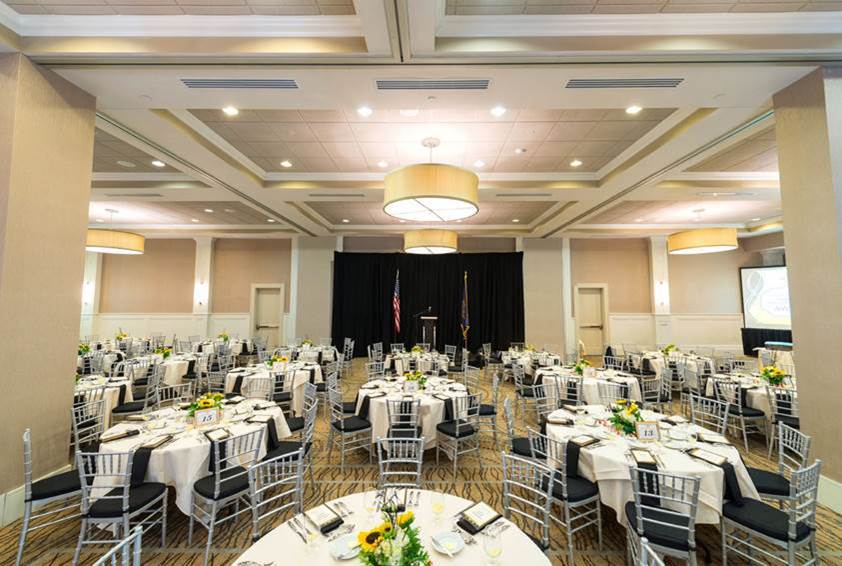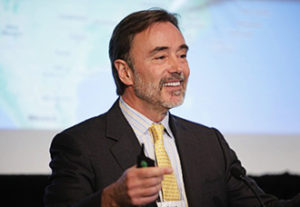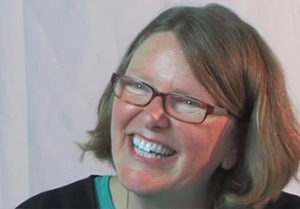Pinetree Resilience Conference 2019: A Community Approach to Trauma Informed Care

- This event has passed.
Pinetree Resilience Conference 2019: A Community Approach to Trauma Informed Care

This event has passed, but save the date for next year’s conference May 1, 2020.
We will see you next year!
6.25 CEs available
Click here for more information
Continuing Education
6.25 CEs are available through R. Cassidy Seminars. Click here to be redirected to the R Cassidy Seminars site where you can get more information and register for your CEs and Certificate of Completion.
Please note you must register for CEs separately. Registering for the conference will not register you for CEs and Certificates of Completion.
Early Bird, local, student, group and Rotary discounts available. Tickets are limited!
Who Is This Conference For?
Health Care Practitioners | Educators | Law Enforcement Professionals | Social Services Providers
Mental Health and Addiction Counselors | Community & Business Leaders
The Conference
Largely in response to the worsening opioid epidemic in New Hampshire and Maine, Pinetree is bringing together health care providers, social workers, educators, mental health practitioners, law enforcement officials, and other community leaders for the 2019 Resilience Conference. This conference will:
- raise awareness of Adverse Childhood Experiences (ACEs)
- inform, enlighten and motivate collaborations and new thinking; inspiring action
- improve outcomes by introducing enhanced approaches to addressing a host of community issues, most especially our substance misuse crisis, at their root cause.
Dr. Robert Anda and Ms. Laura Porter are our featured presenters. Both speakers are featured in the compelling documentary by Jamie Redford, “Resilience: the Biology of Stress and the Science of Hope.” They are two of the most prominent figures in this important movement, demonstrating how to turn the science of ACEs into action, achieving astonishing results in community healing.
During the Pinetree Resilience Conference, participants will:
- Be given direct instruction about the most powerful determinant of health, plus emerging science that informs what we can do to shift the trajectory of health for future generations.
- Review the ways that stress during development can affect cognition, relationships, health, behavior and patterns of crisis and coping that can continue to affect life experiences.
- Be introduced to data that illuminates community challenges attributable to ACEs.
- Receive application examples, as well as common features of successful community work.
- Explore the implications and potential application of the science within a professional affinity group, then share those ideas with people living or working within a community.
- Discuss ways to increase impact, using the synergy of concurrent and aligned action across many disciplines.
After the Conference, participants will:
- Understand and be able to describe the relevance of scientific findings about how experience shapes health and well-being throughout the life-course and its relevance to programs and community capacity development. This includes:
- The effects of toxic stress on development, and the relevance of ACE concepts to child and family support.
- The progressive nature of adversity across the life course.
- Key variables for improving relational and community context for promotion of wellbeing.
- Understand and be able to incorporate into organizational or community planning and variation in ACE prevalence and associated ACE-attributable health and social problems.
- Understand and be able to incorporate the principles and processes of Self-Healing Communities into organizational or community planning.
- Generate and develop ideas for program/system improvement that are informed by ACE Concepts and Self-Healing Communities principles and processes that hold promise for improving population-level outcomes.
- Have a common language and understanding to support discussion and assessment of the potential synergistic benefits of concurrent ACE-informed action by several disciplines within a community.
Continuing Education
Learn more on how to get 6.25 continuing education credits
Continuing Education
6.25 CEs are available through R. Cassidy Seminars. Click here to be redirected to the R Cassidy Seminars site where you can get more information and register for your CEs and Certificate of Completion.
Please note you must register for CEs separately. Registering for the conference will not register you for CEs and Certificates of Completion.

The Portsmouth Harbor Events Center where the conference will be held.
Laura Porter discusses breaking the cycle of ACEs in this brief video. She will be discussing best practices for community-wide implementation of ACEs initiatives and trauma informed care which have been transformative in the state of Washington.
Speakers

Dr. Robert Anda is the co-author of the CDC-Kaiser Permanente Adverse Childhood Experiences study, one of the largest investigations into in the effects of childhood abuse and neglect on the adults those children become.
See Dr. Robert Anda's full bio
Dr. Robert Anda
 Dr. Robert (Rob) Anda graduated from Rush Medical College in 1979 and received his board certification in internal medicine in 1982. In 1984 he completed a fellowship in preventive medicine at the University of Wisconsin, received a Masters Degree in epidemiology, and was accepted into the Epidemic Intelligence Service at the Centers for Disease Control and Prevention in Atlanta. He conducted research in disease surveillance, behavioral health, mental health and disease, cardiovascular disease, psychosocial origins of health-risk behaviors, and childhood determinants of health.
Dr. Robert (Rob) Anda graduated from Rush Medical College in 1979 and received his board certification in internal medicine in 1982. In 1984 he completed a fellowship in preventive medicine at the University of Wisconsin, received a Masters Degree in epidemiology, and was accepted into the Epidemic Intelligence Service at the Centers for Disease Control and Prevention in Atlanta. He conducted research in disease surveillance, behavioral health, mental health and disease, cardiovascular disease, psychosocial origins of health-risk behaviors, and childhood determinants of health.
In the early 1990’s, Rob began a collaboration with Dr. Vincent Felitti at Kaiser Permanente in San Diego to investigate child abuse as an underlying cause of medical, social, and public health problems. This effort lead to a large-scale study funded by the CDC to track the effects of childhood trauma on health throughout the lifespan. They called it the Adverse Childhood Experiences Study (ACE Study). Rob played a principal role in the design of the study, and serves as its co-principal investigator and co-founder.
Data collected from more than 17,000 patients clearly showed that adverse childhood experiences (ACEs), were common; that they had a profound negative effect on health and well-being; and were a prime determinant of the past, current and future health behaviors, social problems, disease incidence, and early death in the study population. These findings have resulted in more than 70 publications in major medical and public health journals. The ideas from this work are now influencing the design of similar research around the world.
Findings from the ACE Study have been presented at Congressional Briefings and numerous conferences around the world. The ACE Study is being replicated in numerous countries by the World Health Organization (WHO), and is in use to assess the childhood origins of health and social problems in more than 18 U.S. states.
Rob continues to work as a CDC senior scientific consultant in Atlanta, but his time is increasingly devoted to traveling the nation to consult and speak with leaders in public health, medicine, corrections, judicial and social service systems and with local, state, national, and international organizations about the ACE Study. He is showing how its findings are useful to inform programs, policy, and legislation to prevent disease and disability.
Rob is the author of more than 200 publications, including numerous government publications, and book chapters, and has received numerous awards and recognition for scientific achievements. He has appeared in national newspapers and television networks and is frequently invited to speak about the ACE Study and his experiences around the country working on applications of ACE Study concepts.
Just as in his work, Rob is passionate about gardening and scuba diving, when his schedule permits. He also enjoys fishing and golf. He makes his home in Fayetteville, GA.

Ms. Laura Porter, co-founder of ACE Interface, LLC along with Dr. Anda, will share insights from more than a decade of leading successful state-wide implementation of ACEs concepts.
See Ms. Laura Porter's full bio
Ms. Laura Porter
 Laura Porter is Co-Founder of ACE Interface, LLC. With Dr. Robert Anda, Ms. Porter develops and disseminates educational products and empowerment strategies that help leaders throughout the nation to dramatically improve population health. She is honored to be a thought partner, educator, consultant and coach in two dozen states. Ms. Porter provides support and services to a wide range of groups… from parents leading informal initiatives to officials leading state and federal agencies.
Laura Porter is Co-Founder of ACE Interface, LLC. With Dr. Robert Anda, Ms. Porter develops and disseminates educational products and empowerment strategies that help leaders throughout the nation to dramatically improve population health. She is honored to be a thought partner, educator, consultant and coach in two dozen states. Ms. Porter provides support and services to a wide range of groups… from parents leading informal initiatives to officials leading state and federal agencies.
Laura Porter brings to ACE Interface more than a decade of experience leading successful state-wide implementation of ACE Study concepts. Her expertise includes overseeing analysis and dissemination of surveillance and archival data to support decision making, and designing and facilitating processes demonstrated to improve population health, safety and productivity. Laura is committed to developing market forces in the ACE social movement sufficient to sustain the courageous leaders who are using ACE and resilience science and Building Self-Healing Communities.
Ms. Porter concurrently serves as the Senior Director of The Learning Institute at the Foundation for Healthy Generations, a Seattle-based non-profit. There she oversees analysis of Washington State ACE data and works with local and state leaders to embed NEAR science findings into policy, practice and community norms. (NEAR: Neuroscience, Epigenetics, ACE and Resilience)
As an Associate with the Southwest and Central offices of the Substance Abuse and Mental Health Services Administration (SAMHSA) Center for the Application of Prevention Technologies (CAPT), Ms. Porter helps CAPT and its grantees to integrate powerful findings from the landmark Adverse Childhood Experiences Study into prevention planning, practice, and evaluation. The CAPT is a national substance abuse prevention training and technical assistance (T/TA) system dedicated to strengthening prevention systems and the nation’s behavioral health workforce.
Video clip related to her work with CAPT.
From 1998 to 2013, Laura Porter directed the Washington State Family Policy Council and Office of ACE Partnerships. In these roles, she worked with Senators and Representatives from the four caucuses of the Washington Legislature, five members of the Governor’s Cabinet, managers from seven state agencies, directors and members of 53 community-based collaborative organizations and leaders from ten Tribes. Laura and her colleagues developed a unique model for improving the capacity of communities to deliver stunning results for a small investment. Communities using the model have documented rEducations in the rates of seven major social problems and Adverse Childhood Experience scores among young adults. Cost savings from caseload rEducations attributable to the Family Policy Council in child welfare, juvenile justice and public medical costs associated with births to teen mothers were estimated by an independent economist to exceed $55m/biennium.
Prior to her work with the State of Washington, Laura Porter served as an elected County Commissioner. Commissioner Porter designed a service-oriented approach to water quality assurance that secured family wage jobs in the shellfish industry. She also led an inter-jurisdictional criminal justice initiative that implemented prevention, facilities and system improvements. Working cooperatively with over a dozen unions and guilds, Commissioner Porter ended a multi-year pattern of grievances and strikes, thus assuring uninterrupted county services to businesses and residents. In 1991, Commissioner Porter authored a public transportation plan which won voter approval and created the Mason County Transportation Authority. During her tenure as a founding member of the Board of Directors, Mason Transit became the first transit system in the state with all routes and services fully ADA accessible. Commissioner Porter served on the Washington Counties Risk Pool Board of Directors (liability), the Washington Counties Insurance Fund Board of Directors (health), and the Washington State Association of Counties Legislative Steering Committee.
Laura is mother to three children and grandmother to three precious grandchildren.
Agenda for the day:
| 8:00 | Greeting, informal mixing |
|---|---|
| 8:30 | Welcome, announcements, introduce Rob |
| 8:45 | Understanding ACEs, promise of Self-Healing Communities.
Why you believe in Self-Healing Communities – outcomes from WA |
| 10:00 | Discussion: What came up for you as you listened to Rob? How do ACEs “show-up” in our communities?
|
| 10:15 | BREAK |
| 10:30 | Self-Healing Communities – high leverage solutions John Snow – act in own sphere of influence Dual generation, reduce stress activation, systematically notice what works for whom, in what context. Help that Helps ACE concept application examples (NEAR@Home, relapse prevention, crisis nursery, Juvenile Intervention Program, CPS transitions supports in court, systematic noticing – including Stress-related Executive Dysfunction. |
| 11:00 | Executive Skills Questionnaire with debrief |
| 11:20 | Principles of Self-Healing Communities – What we learned from successful communities (primarily stories to illustrate principles) |
| 12:00 | Lunch Break |
| 12:45 | How use of the ACE Study is expanding. Why educate everyone? Faculties of the Mind |
| 1:10 | What is radically right about the work we do, or the way we work currently? How might the way we work, or the work we do be counterproductive, given what we know about ACEs? How are we uniquely positioned to interrupt progression of adversity and/or ACE transmission If our policies, programs, and practices were focused to effectively interrupt progression of adversity and prevent ACEs in the next generation, what might that look like? What would have to change? What two or three ideas for action could we begin right away? |
| 2:00 | BREAK |
| 2:15 | Share what came up with each affinity group (round-robin)Discuss: how would other disciplines be impacted by the changes recommended by each group? Stepping back to consider the set of action ideas suggested, and any others that come up during discussion: What actions, if we were taking them next, would invite a profound shift in norms… such that parents and other residents experience wellbeing and can actively participate in preventing accumulation of ACEs in the next generation? Given all we have thought about; what’s needed or next? What would you ask of your colleagues so that next steps are powerful and generative? |
| 3:15 | A few popcorn reports – what ideas or insights stood out as unique, surprising, insightful, potentially powerful, fun for others to hear about? |
| 3:45 | Thank you, promises from the host, request for evaluations |
| 4:00 | Conference concludes |
This event has passed, but save the date for next year’s conference May 1st 2020.
We will see you next year!
6.25 CEs available
Click here for more information
Continuing Education
6.25 CEs are available through R. Cassidy Seminars. Click here to be redirected to the R Cassidy Seminars site where you can get more information and register for your CEs and Certificate of Completion.
Please note you must register for CEs separately. Registering for the conference will not register you for CEs and Certificates of Completion.
Local: If you live or work in Rockingham or Strafford Counties in NH or York County in ME, use the code “local” to save $20 off registration!
Students: Enter the code “student” to get the special student rate of $95.
Groups: For groups of 3 or more, click here to contact us directly about a 10% discount for your group.
Rotary: Rotary members are eligible for a special rate. Click here for information
Members of Rotary Clubs in New England are eligible for the special rate of $150. Enter the code “rotary” to get the special rate.
Cancellation Policy: Full refund through April 29th, after April 29th 50% refund.